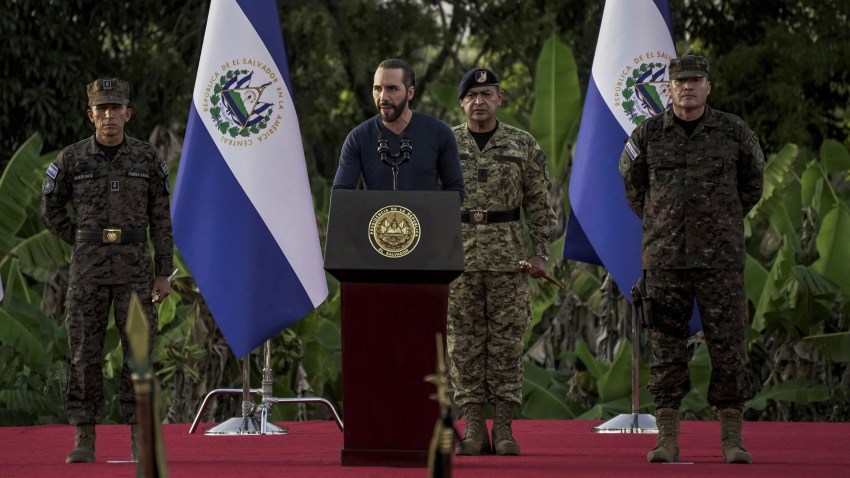Back in October, the mother of Karla Raquel Garcia stood with other protesting parents outside the juvenile detention center in Ilopango, El Salvador, waving $300 in the air as she tearfully demanded information on the whereabouts of her daughter. Sixteen-year-old Karla had been arrested for no clear reason in June and reportedly lost the baby she was carrying due to a beating at the hands of the arresting officers. Since then, Karla’s mother has not had any news about her daughter’s whereabouts and condition.
“I trusted you, mister president,” Karla’s mother shouted. “You gave us $300. I’ll hand them back to you, mister president. Give me my daughter back.”
Though Salvadoran President Nayib Bukele was not there to hear her that day, the $300 that Karla’s mother brandished was the amount his government had handed out to some 100,000 poor families in 2020 to soften the effects of COVID-19 lockdowns. Inhabitants of hard-up areas where the money was distributed had never seen such generosity from the state. To the contrary, they were far more accustomed to being treated with disdain by the country’s often corrupt high officials.

